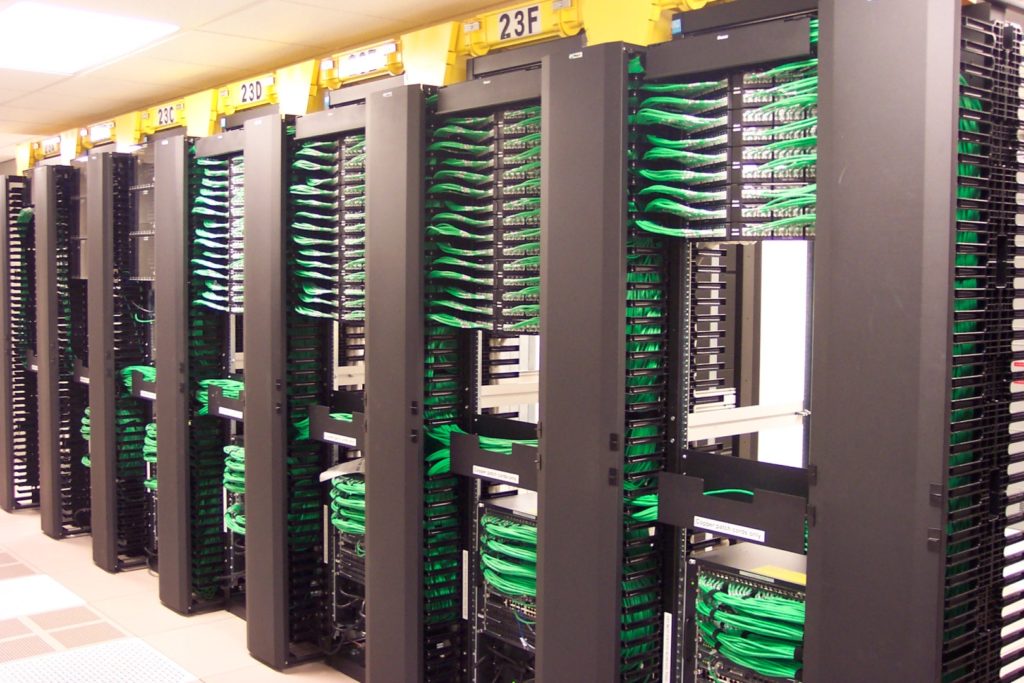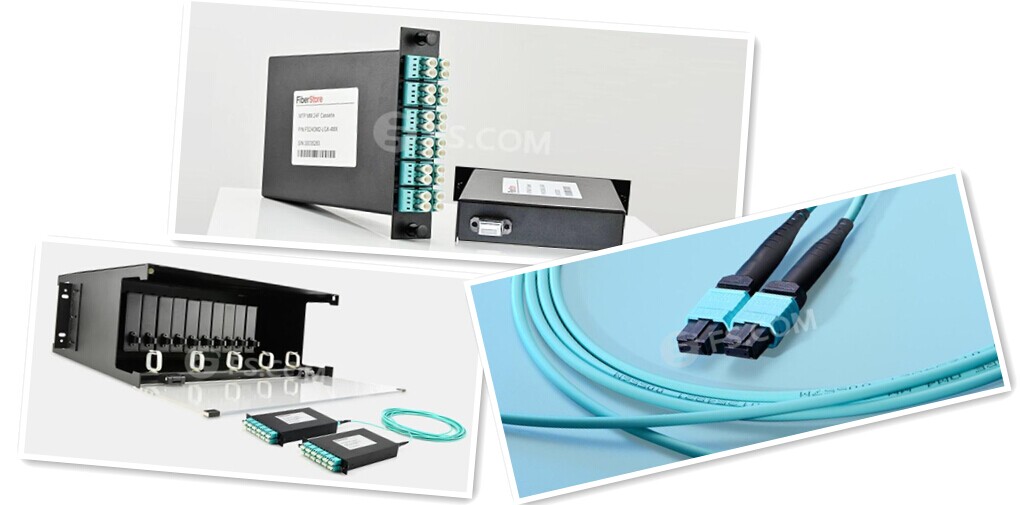The demands on data centres and networks are growing very fast. To meet communication needs, more and more devices are connected to the data centre network links. It brings difficulties in data centre management. The infrastructure design should guarantee the reliable network performance. But how to achieve the best performance? Four suggestions are recommended for you when designing a data centre.
As today, many companies adopt high density configurations and virtualization to increase the capacity of existing IT equipment. To ensure the network performance, a robust data centre infrastructure is necessary. And three parts of the infrastructure must be considered: the structured cabling, racks and cabinets, and the cable management.

Figure 1. Structured data centre
First, the structured cabling performance has a close relationship to the connectivity and cable components. If the components fail to deliver good cabling system, great optical loss will be caused. To improve the channel performance, insertion loss should be minimized especially in 40G and 100G data centre. Second, choose right rack or cabinet to accommodate new equipment with different size and weight requirements since active equipment in the infrastructure turn to be broken easily and will be replaced in five years or less. Third, manage the airflow and maintain good cooling system. Because the rising temperature of the data centre has an influence on network performance. The last component of the infrastructure is cable management. A well-designed cable management should meet the standards of spare space, high reliability and scalability. The infrastructure is designed for both copper and fibre, maintaining proper bend radius for both copper and fibre, protecting cable from damage, and creating crosstalk and return loss.
Although data centre grows in size and complexity, it often requires faster deployment. It must adapt to the rapid changing business requirements. As it says, time is money. Selecting an infrastructure that optimize time, result in faster deployments can save lots of costs.
In order to save time in deployment, installation and future moves, adds, and changes, a suitable modular solution based on the rack or cabinet should be applied. The modular solution is also good for effective airflow management and cooling, which can save time because it can easily support high density when needed. Pre-terminated copper and fibre cabling solutions can also save time during installation and future cabling moves. Pre-terminated fibre systems, for example, MPO to MPO trunk cables or MPO to LC harness cables, can facilitate the migration to higher speeds.
To adapt to high speed demands, data centre infrastructure turns to be more complex. Now space is a premium in the data centre as port densities continue to increase. Considering the cost, infrastructure should be optimized for greater flexibility and scalability. High density connectivity options including high density patch panel, MTP cassette, etc. are the solutions to optimize space while supporting large port densities. For instance, LC connectors (2 fibre) have been replaced by MPO (typically 12 or 24 fibres) connectors for the migration from 10 GbE to 40 GbE and 100 GbE.
Figure 2. MTP components for saving space
To optimize space in the data centre, the following factors are needed to be considered:
- Choose the rack or cabinet as your basic building block
- Select racks and cabinets with higher weight limits, sufficient depth and heights that support growing vertically
- Select cable management that can support existing and future cable density, fluent airflow, and is designed to support both copper and fibre
- Select connectivity that supports high density and mixed media
- Use cable with small outside diameter
- Consider patching outside the rack and cabinet to save space for equipment
- Select a rack or cabinet solution that easily integrates with overhead pathways
During the design phase, the data centre design must provide guaranteed performance while providing flexibility and scalability for future needs. During the installation phase, the solution must be easy to install, quick to deploy and easy to manage. So it’s important to find a qualified contractor who has a history of quality installations. You also need to choose a good manufacturer providing cost-effective components covering cooling, power, connectivity, cabling, racks and cabinets, cable management, and pathways, like Fiberstore (FS.COM). And the manufacturer should also have expertise of extending the equipment life, reducing cost and solving other problems in the data centre.
Data centre design is not an easy job as the cabling infrastructure becomes more complex for meeting the growing high data rates demands. To maximize the efficiency of a data centre, too many elements should be taken into consideration. The above content gives suggestions for data centre design to guarantee performance, save time, optimize space, and find an experienced cooperator. Hope this article is useful to your data centre design.

